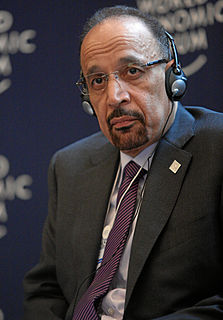A Quote by James P. Gorman
The U.S. economy is the global economic driver. And within the U.S. economy, the U.S. consumer is the global driver.
Related Quotes
If we start thinking simply nationally, and we start having policies that try and restrict the benefits only within our borders, and try and implement protectionist measures as a consequence, this will not have the effect we need to have on the global economy. And that's ultimately the global economy that's pulling most of us down, particularly countries like Canada, that aren't the source of these current economic troubles.
































